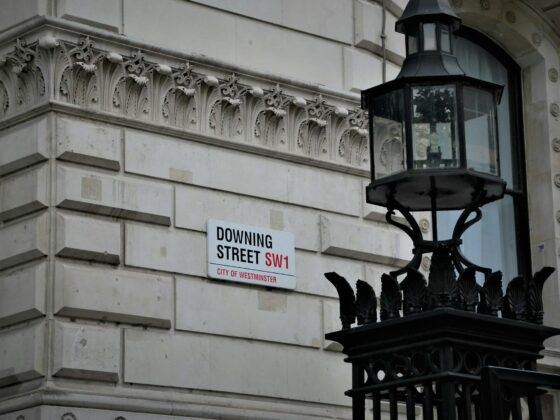The Digital Markets Act (DMA) was designed to dismantle the dominance of “gatekeepers” and ensure a fairer competitive landscape for businesses. However, its implementation, particularly in the travel and hospitality industry, reveals a duality in impact: while companies like Google face stringent compliance measures leading to significant operational shifts, others, like Booking.com, have adopted surface-level compliance. This creates a paradox where the DMA’s spirit risks being undermined by uneven enforcement.
Google’s Over-Compliance
Google has arguably gone above and beyond to comply with the DMA. The tech giant has implemented over 20 changes to its European services, including removing valuable features that previously supported suppliers’ organic visibility. Tools such as flight information displays and interactive maps have been curtailed, diminishing the user experience for European consumers. These changes have disproportionately benefited large travel aggregators, OTAs, and comparison sites while making it harder for airlines, hotel operators, and small retailers to connect with customers. Reports suggest that free direct booking clicks have dropped by as much as 30% since these changes were introduced (source:
D-EDGE Hospitality Solutions
– https://www.d-edge.com/the-dma-is-changing-google-search-but-not-how-hoteliers-had-hoped/).
The imminent elimination of the pay-per-stay (commission) model for Google meta-search ads will likely exacerbate the problem, pushing hotels toward costlier pay-per-click campaigns. Ironically, Google’s compliance-driven changes have funneled traffic away from direct hotel websites, strengthening OTAs like Booking.com—effectively undermining the DMA’s intent to empower suppliers.
Booking.com: Cosmetic Changes?
In stark contrast, Booking.com‘s compliance appears superficial. While the OTA has made some adjustments to align with the DMA, these changes fail to address deeper structural issues that sustain its dominance.
Programs like “Genius” and “Visibility Booster” continue to manipulate rankings, systematically disadvantaging properties that opt out. This undermines the DMA’s goal of fostering neutral and transparent rankings. Moreover, Booking.com‘s practice of masking guest email addresses with aliases prevents hoteliers from building meaningful relationships with customers—contradicting the DMA’s principle of data accessibility for business users.
Other restrictive policies, such as pre-payment systems via virtual cards and limited guest data access, further curtail hotelier autonomy. These practices stand in direct opposition to the DMA’s mission of creating a level playing field. While Google’s changes are visible and impactful, Booking.com‘s updates appear more focused on optics than genuine compliance. Key issues like algorithm transparency, parity clauses, and data portability remain largely unaddressed, prompting criticism from hotel associations across Europe.
The Fallout: Winners and Losers
The disparity in compliance between Google and Booking.com has created clear winners and losers. OTAs, buoyed by Google’s reduced ability to prioritize supplier links, have emerged as the primary beneficiaries. Meanwhile, small and independent hotels face rising distribution costs and declining direct bookings.
This imbalance jeopardizes the DMA’s foundational goals. Rather than fostering competition and transparency, the uneven application of the regulation has amplified existing disparities: Google’s stringent compliance has, paradoxically, weakened its competitive position relative to OTAs, while Booking.com‘s superficial changes underscore the need for stricter oversight.
In Google’s own words:
“We acknowledge that the DMA requires some significant changes to our online services in Europe—but we do not believe that the end goal is to prevent search engines from innovating and competing […] This would prevent Google from showing people useful information like prices and ratings.”
As part of its efforts to comply with the DMA, Google recently tested the removal of certain hotel features from search results in Germany, Belgium, and Estonia. These features included maps showing hotel locations and results beneath them, reverting to a simpler list of website links—a return to the old “ten blue links” format. While initially a temporary test, Google shared the results last week, and as expected, they painted a concerning picture.
According to Oliver Bethell, Google’s Head of EMEA Legal, the test revealed the following:
- User Dissatisfaction: Users were less satisfied with their search results, requiring more searches to find suitable hotels. Many gave up entirely, failing to find what they were looking for.
- Traffic Impact: Overall traffic to hotels and intermediary sites declined, with hotels being the hardest hit. European hotels saw a traffic drop of over 10%, affecting hundreds of thousands of properties. Meanwhile, traffic to intermediary sites remained largely flat.
In response to these findings, Google has stopped the test, citing the negative implications for both users and businesses. Bethell highlighted that the changes already implemented to comply with the DMA have diverted significant traffic from hotels to intermediaries, effectively raising costs for consumers. The test results further demonstrate that removing hotel features entirely would create a lose-lose scenario for users and European businesses alike.
Google has expressed its concerns directly to the European Commission, emphasizing the need for a more balanced approach to DMA compliance that avoids harming consumers and the industry. For now, Google will continue to engage with regulators, but the test results underscore the risks of overregulation and the unintended consequences it can bring to the travel and hospitality sector.
The paradox here is glaring, and hospitality industry is left grappling with the unintended consequences of well-meaning but uneven regulation.
I’ve said it before, and will say it again: many hoteliers are beginning to see the Digital Markets Act for what it truly is—a Disaster Marketing Act.








